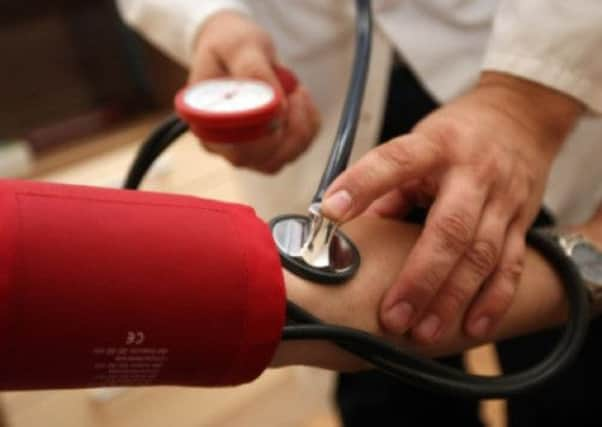RCN warning over strain on out-of-hours GP service


The warning comes after a report yesterday which the nursing body said “paints a picture of a confused landscape across Scotland” for the provision of GP out-of-hours (OOH) care.
The Scottish Government report “Primary Care Workforce Survey 2013 – Out of Hours GP Services Strand” noted difficulties in all 14 NHS Boards.
Advertisement
Hide AdAdvertisement
Hide AdThe main problems were providing GP cover at weekends, public holidays and in peak periods such as school holidays.
Problems were also reported in filling later evening and overnight sessions during the week, cover for GP annual leave and “protected learning time” sessions, when some general practices close for staff training.
Theresa Fyffe, director of RCN Scotland, said: “This report acknowledges there are difficulties in all NHS boards in staffing the required number of OOH shifts and boards themselves often acknowledge they are reliant on goodwill and being able to persuade staff to fill shifts. This is no way to run a service.
“We all want more care delivered safely in the community, so more patients are treated closer to or at home and with fewer people admitted to hospital.
“In some areas of Scotland, highly qualified and skilled advanced nurse practitioners are offering appropriate care and treatment to patients out of hours and we need to build on this and provide more opportunities and resources for nurses to step up to this challenge.”
The main reasons cited included increased GP workload – staff said they did not have the energy for OOH shifts or faced an early daytime surgery next morning. Another factor was the reduction in the number of GPs available in each NHS Board area, including the difficulty in recruiting in some areas.
The report also highlighted a perception that younger GPs, or those with childcare responsibilities, were less willing or able than older counterparts to work such shifts. Other concerns included the fact pay rates had not increased in recent years and the particular difficulty of attracting GPs to work in rural areas.
The current problem can be traced back to 2004, when medical practices were first contractually allowed to choose whether they would provide OOH services. The vast majority chose not to do so, meaning that responsibility went to health boards.
Advertisement
Hide AdAdvertisement
Hide AdA spokeswoman for the British Medical Association in Scotland said: “Out of hours urgent care is a vital part of the NHS care patients need, but the solution is not singularly that of GPs doing more. We need to keep looking at how OOH care across the NHS in Scotland is working, along with social care services, to make sure that we are providing the right support and care that patients need, in the right place.”
A Scottish Government spokesperson said: “We understand the pressures and challenges these services are experiencing in sustaining delivery and that is why our £50 million unscheduled care action plan includes OOH primary medical care alongside every element of unscheduled care in Scotland.
“Patient care is provided by the whole clinical team, so a consultation could be with a doctor, nurse or another health care professional. All members of staff are expected to have the necessary skills and training for any role they undertake.”